I have been making my own cleaning products for years from household items, such as vinegar, soapy water, and baking soda, which are easy to work with and non-toxic.
To remove odor, I also use essential oils from garden flowers and herbs.
Whenever it comes to making homemade items for the homestead, I love doing it all day. Today, I have come up with 15 natural and homemade cleaning recipes for different items.
1. All-Purpose Citrus Cleaner
This is the most common recipe used on kitchen counters, tables, and other general wipe-down surfaces.
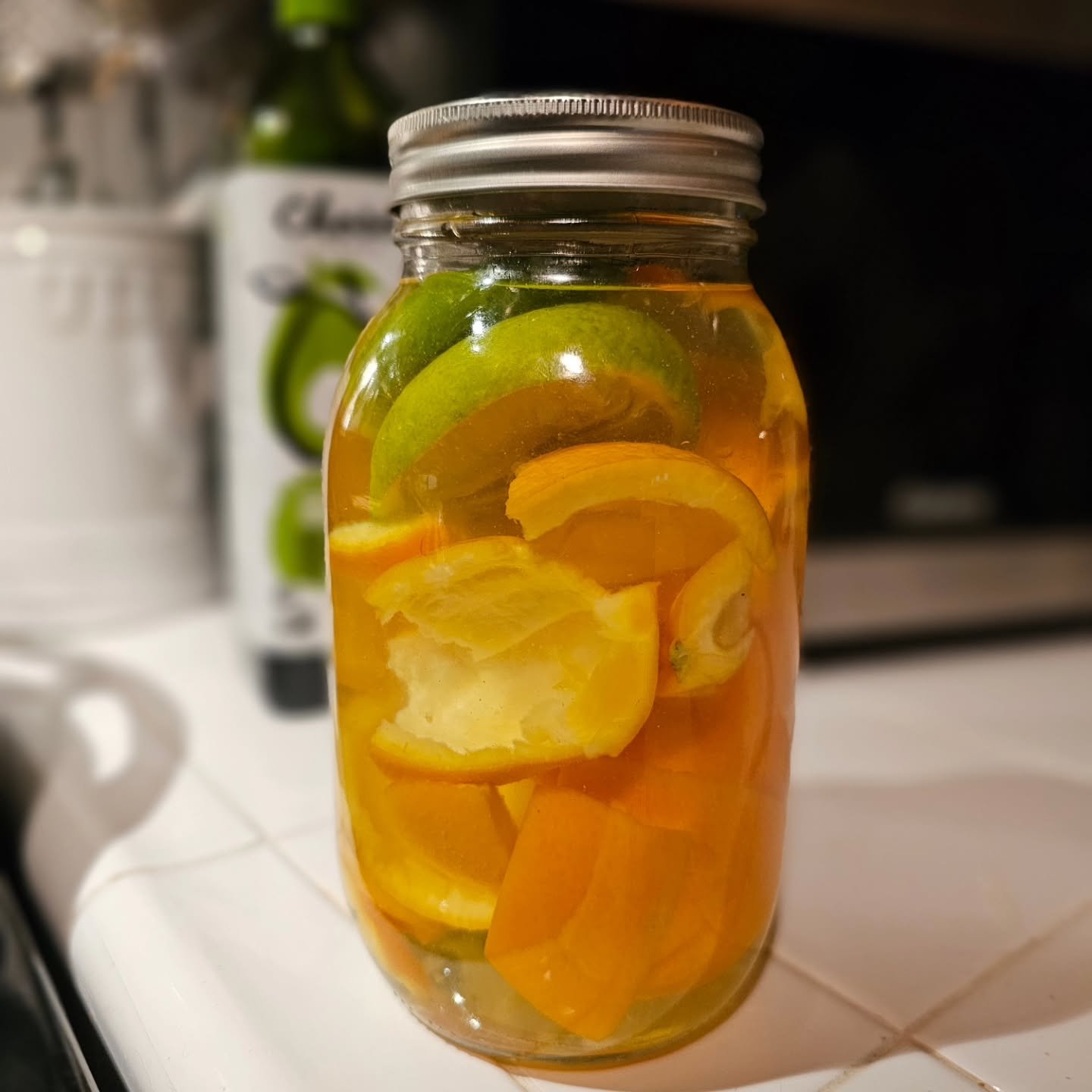
To make it, I toss citrus peels ( you can take any of lemon, orange, or clementine) into a wide-mouthed mason jar. Then, I pour in some distilled white vinegar to cover the peels.
Let it steep for a week or two. I don’t know the science behind it, but that’s how it works.
Then, you need to strain out all the peels and solids. Keep citrus vinegar in a glass jar with a tight lid for an eco-friendly home.
2. Baking Soda Scrub for Stubborn Stains
Baking soda is great for scrubbing with, as it helps remove stains, odors, and ground-in dirt. It cleans limescale and soap residue.
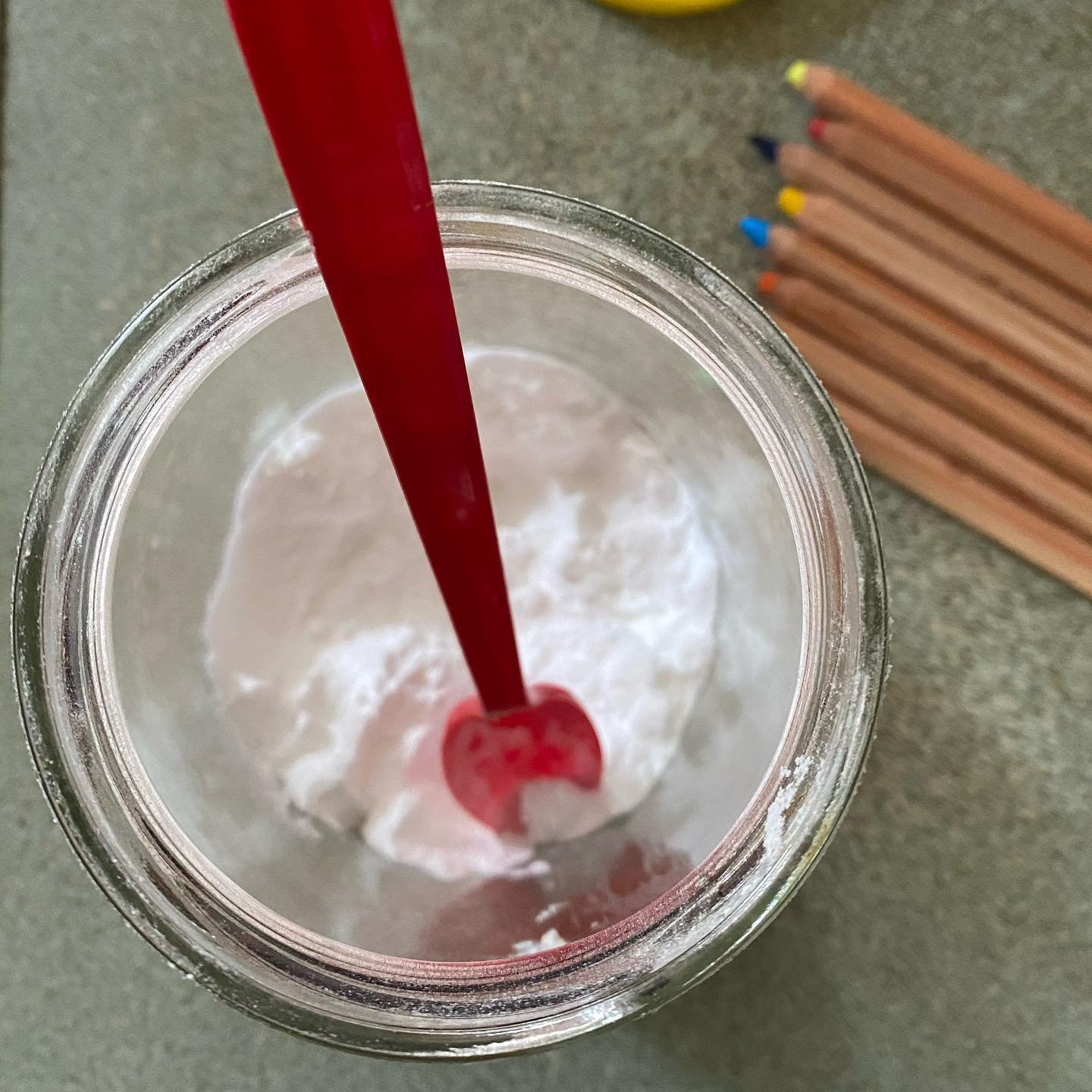
It is perfect for cleaning sinks, stovetops, and bathroom tiles.
Make a solution including 70% white vinegar, 30% water, a generous squirt of dish soap (castile soap), and essential oils based on your choice.
If you have a hard time getting limescale off, skip the water and use straight vinegar.
I find dish soap is great for dissolving soap scum and other greasy residues. Though you may not like the smell of vinegar, keep it in the mix.
If you want to replace the vinegar, use citric acid or a water solution. It won’t smell foul.
3. Natural Glass & Mirror Cleaner
My all-time favorite recipe includes 60 ml of white vinegar, 60 ml of rubbing alcohol, and 15 ml of cornstarch.
Mix all ingredients and pour into a 750 ml spray bottle filled with water. While vinegar removes grease, rubbing alcohol dries streak-free, and cornstarch acts as an abrasive to polish glass.
To start, use your first wet with the cleaner. Spray on the glass and mirror, and do a first pass thoroughly with that, and use a cleaner rag for the second pass.
Then, switch to paper towels for the final polish and shine.
4. Disinfecting Spray (Non-Toxic)
Many disinfectant wipes are diluted mixtures with rubbing alcohol. If dish soap or shampoo is added, it works great on tubs. Apply to grease and grime.
For lime scale, you can use vinegar, but it needs to be stronger than a grocery store cleaner. Hardware stores often have 30% by the gallon.
My general recipe includes 1/4 cup of 90% rubbing alcohol, 40 drops of orange oil, 1 tsp unscented dish soap, and 1 quart of vinegar.
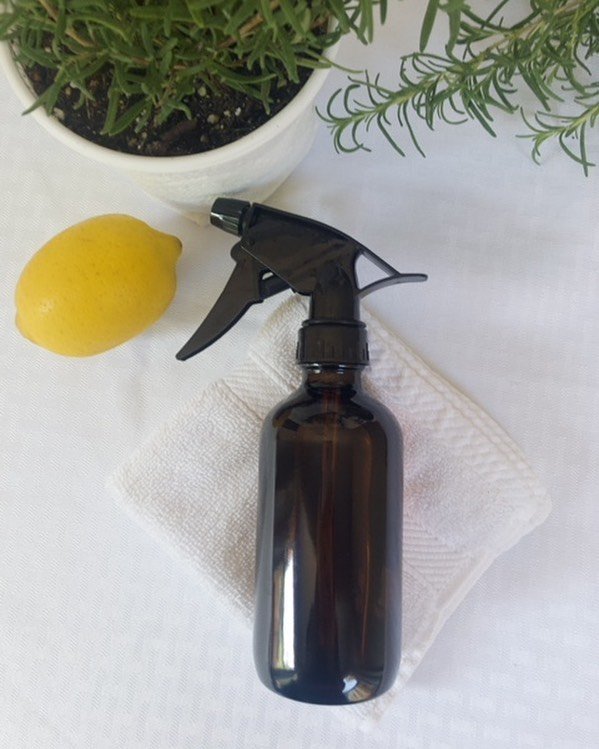
The rubbing alcohol has more disinfecting ability than vinegar.
You can use it for high-touch areas such as doorknobs and light switches.
5. Homemade Floor Cleaner
That’s a very common and everyday cleaning schedule that requires a nice swifter-type mop.
Before that, make a recipe of white vinegar and a few drops of castile soap or dish soap in warm water. You can also add essential oils to remove odor and refresh with a sweet smell.
Use a spray bottle from a long-gone cleaner.
The baking soda helps with scrubbing porcelain or other surfaces that need abrasion.
This works well on wood, laminate, and tile. But avoid vinegar if you have marble or granite.
6. Carpet Freshener
For carpet cleaner and deodorizer, prepare a mixture of one part vinegar and one part water.
In another way, you can use baking soda and add a few drops of essential oils (lavender or peppermint oil). Sprinkle it on the carpet and let it sit for a few minutes, and vacuum it up.
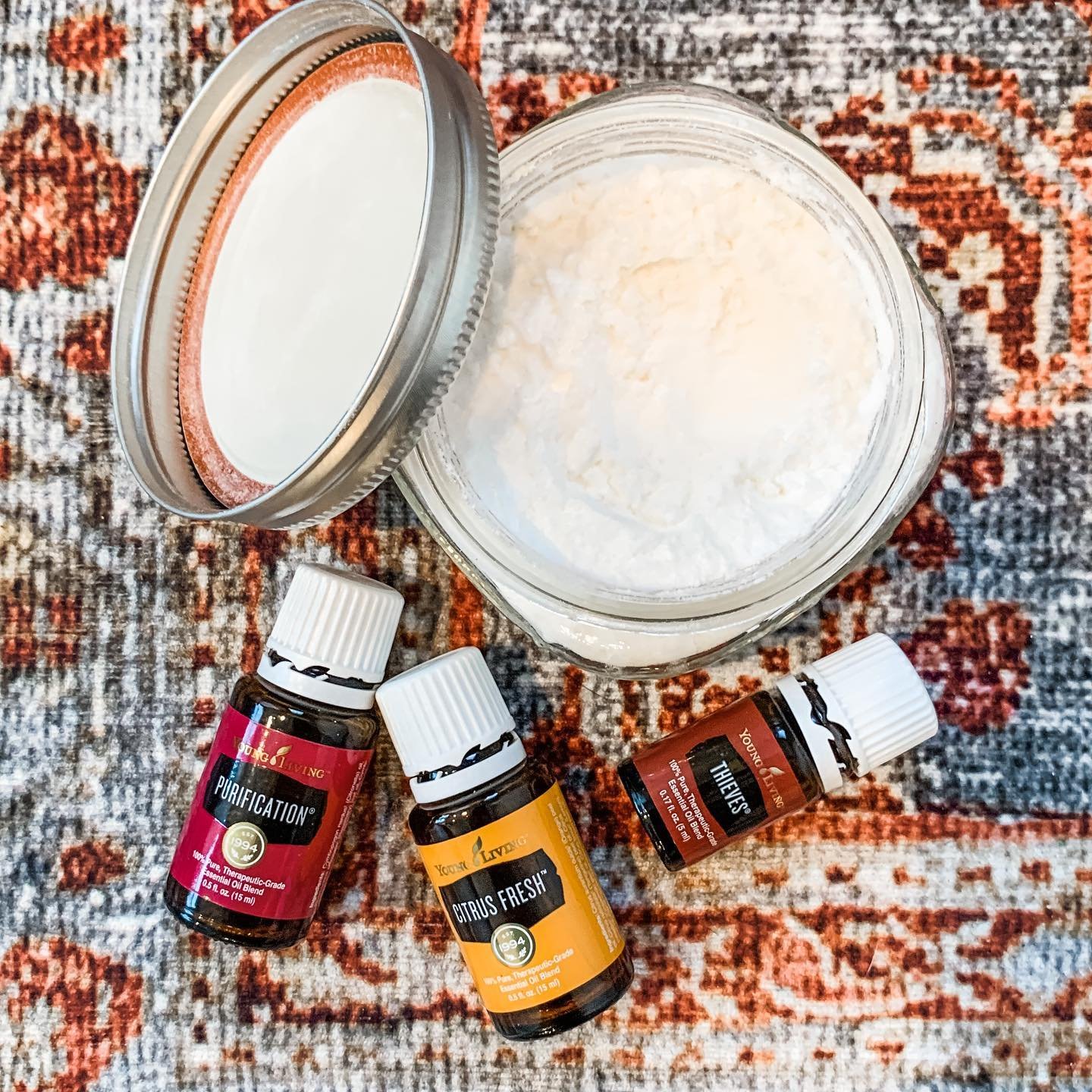
Then, allow it to dry for about 30 minutes before using the room.
7. DIY Toilet Bowl Cleaner
I have truly had good luck with vinegar and sola water in the bowl. This helps me with all the smelly stuff and refreshes the toilet a bit with a nice smell.
Fill a spray bottle almost to the top with white vinegar and add a dab of baking soda or dish soap. Dont forget to pour some drops of tea tree oil.
Shake it a little bit, and you are ready to clean the toilet bowl. Just sprinkle, scrub, and flush.
I turn the water off, empty out the tank, and rinse it with the prepared mix. If overtly messy, you may need a couple of buckets.
8. Natural Dish Soap
This is what my grandma used to make. She made dish soap with coconut oil, a highly saturated fat that works as a great cleanser when saponified with lye.
For this recipe, you need coconut oil, lye, and water, and sometimes rosemary or lemon oil essential oil.
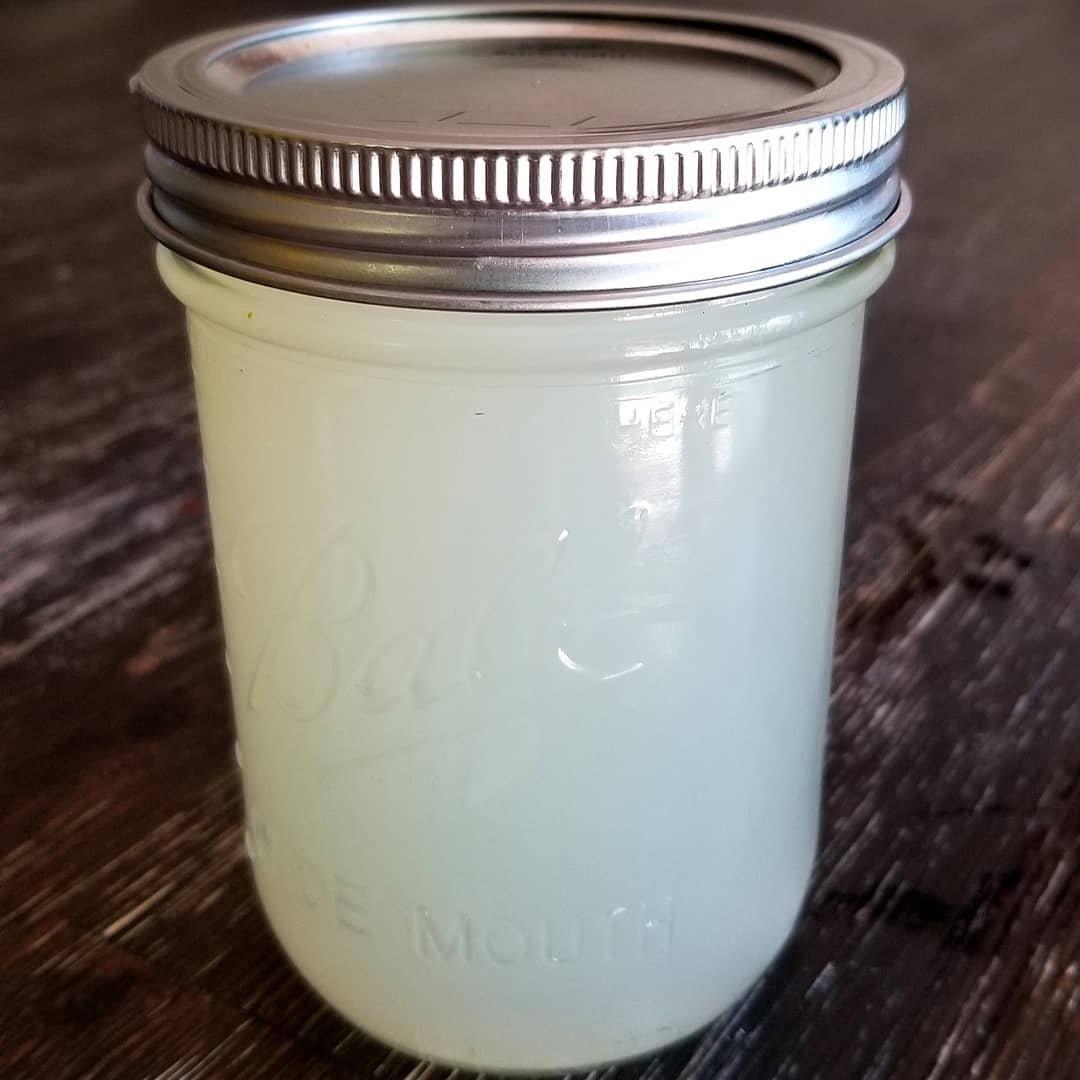
In another way, you require 3 parts borax, 3 parts washing soda, 1 part citric acid, and 1 part kosher salt.
9. Grease-Cutting Kitchen Spray
Citric acid won’t help with grease, so you will need cleaning vinegar, which is stronger than the one you use for cooking.
Dilute it with water and some vodka and pour it into the spray bottle.
You can use a mix of 1.5 oz of vodka, 1.5 oz of vinegar, 1 tsp dish detergent, and mint or eucalyptus (you can take both if you want), and 1 cup of water.
You can use it easily for stovetops and greasy surfaces.
10. Wood Furniture Polish
Take the ratio of 4:1 for mineral oil and beeswax.
Heat the mineral oil on a heat source, but don’t use open flame. Stir the beeswax until it melts and let it cool. When it is cool and turns into a soft paste, put it in a container.
Besides, you can also make furniture polish with olive oil and lemon juice in a 2:1 ratio.
Buff with a soft cloth on the surface, let it sit for a while, and then wipe it off. Avoid excess oil.
11. DIY Air Freshener Spray
When spring arrives, I reset my schedule and create customized scents using natural flowers from my backyard and herb garden.
I make a DIY air freshener spray with a mixture of 1 cup of water, 1/4 cup of rubbing alcohol, and approximately 30 drops of essential oil. I like eucalyptus, lavender, peppermint, and citrus.
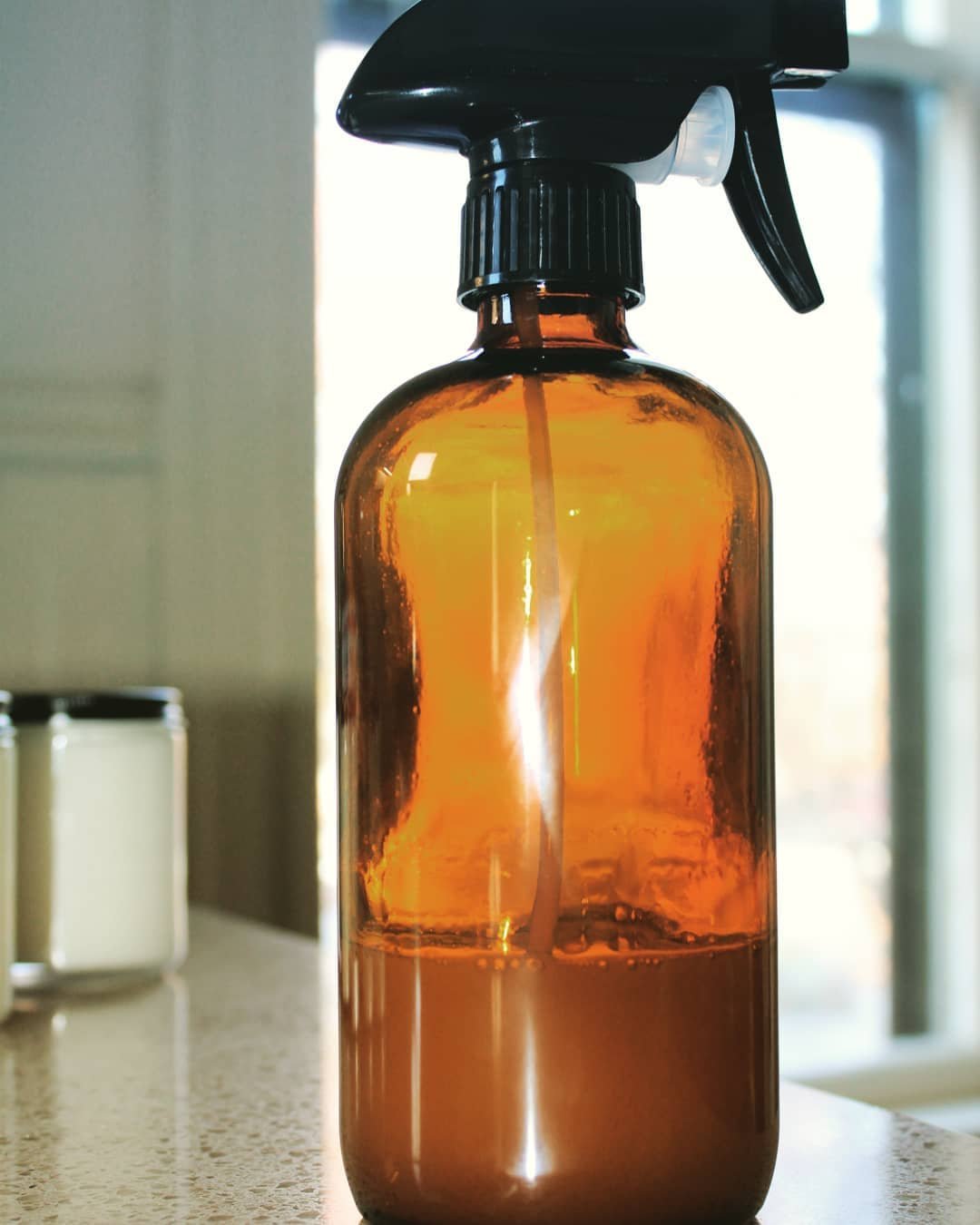
Many use vodka, but I don’t.
You can also use witch hazel as a substitute for rubbing alcohol or vodka.
12. Stainless Steel Cleaner
Take equal parts of white vinegar and olive oil in a spray bottle and shake it till they mix well.
Spray on the surface and buff off with a cotton towel or a cheap dish sponge. Buff it until shiny.
The cleaner works well on both stainless steel and black stainless steel.
13. Laundry Detergent Powder
To make a laundry detergent, you will need 1/3 washing soda, 1/3 ground bar soap, and 1/3 borax. It has no perfumes or additives and is affordable.
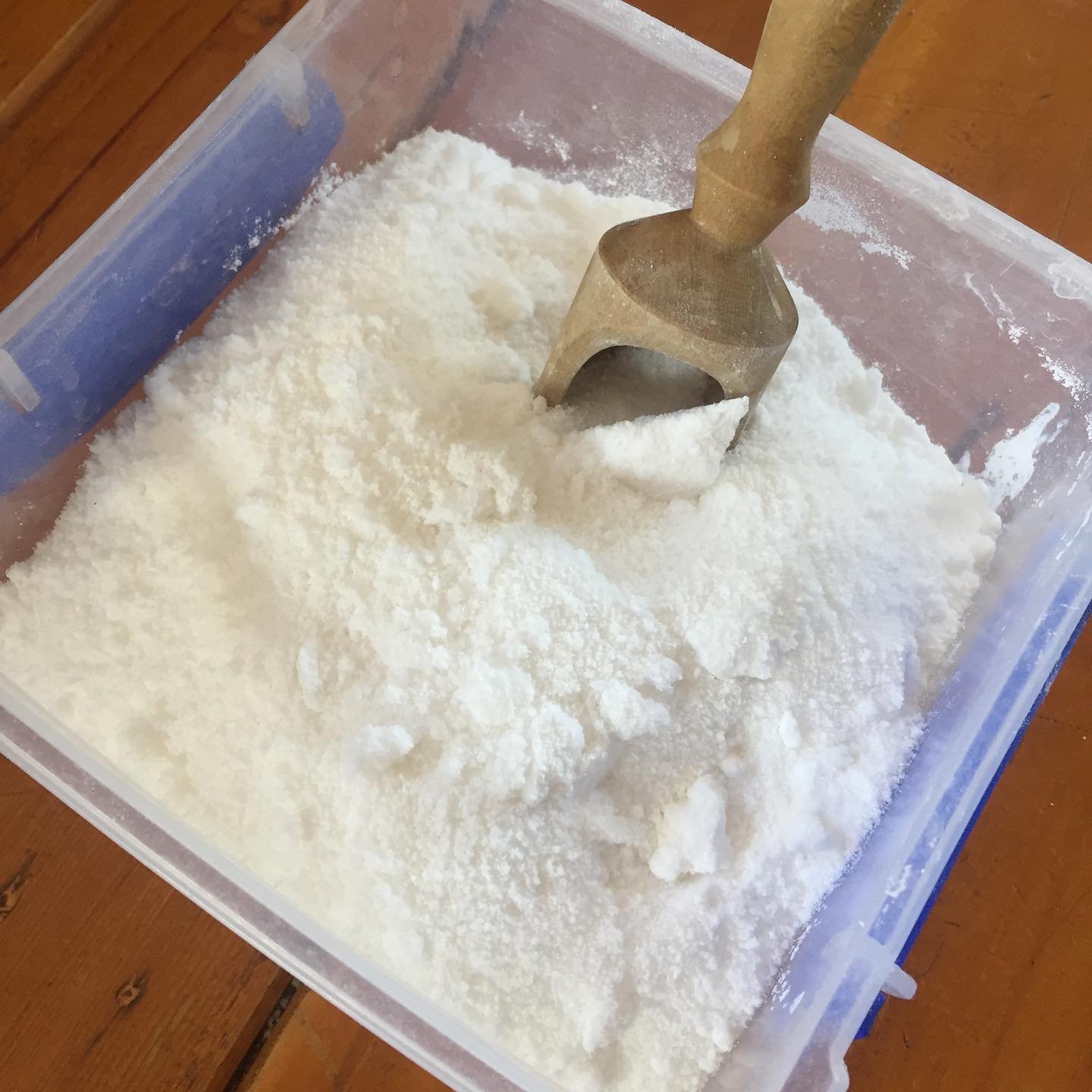
Store in an airtight jar and use 2 tbsp per wash.
Many complain about using borax. They claim that it can irritate your skin and dull your clothes.
For this, use 1/2 cup liquid castile soap, 1/2 cup cleaning soda, 1/2 cup baking soda, 1/4 cup unscented epsom salt, and 30 drops essential oil.
Mix all well in a gallon-sized container filled with 8 cups of hot water.
Add cold water on top, stir well, and let it rest for 24 hours. Before use, shake the container and apply 1/2 a cup per regular load.
14. Microwave Steam Cleaner
I put 1 cup of water and 1 tbsp of vinegar in a container, and microwave for 5 minutes. Then let it sit for about 3 – 10 minutes with the door closed before cleaning out the inside.
The steam inside makes it easy to wipe down, and vinegar removes odors.
You have another easy way. Use lemon juice instead of vinegar. Put a wet sponge with lemon juice or water in the microwave for seconds.
Then, take out the sponge with tongs or wait a minute to cool. Now, you can wipe the microwave out.
15. Shower & Tub Cleaner
Make a solution from 2/3 vinegar, 1/3 dish soap, and essential oils, clove or wintergreen oil to eliminate mold spores and remove odor.
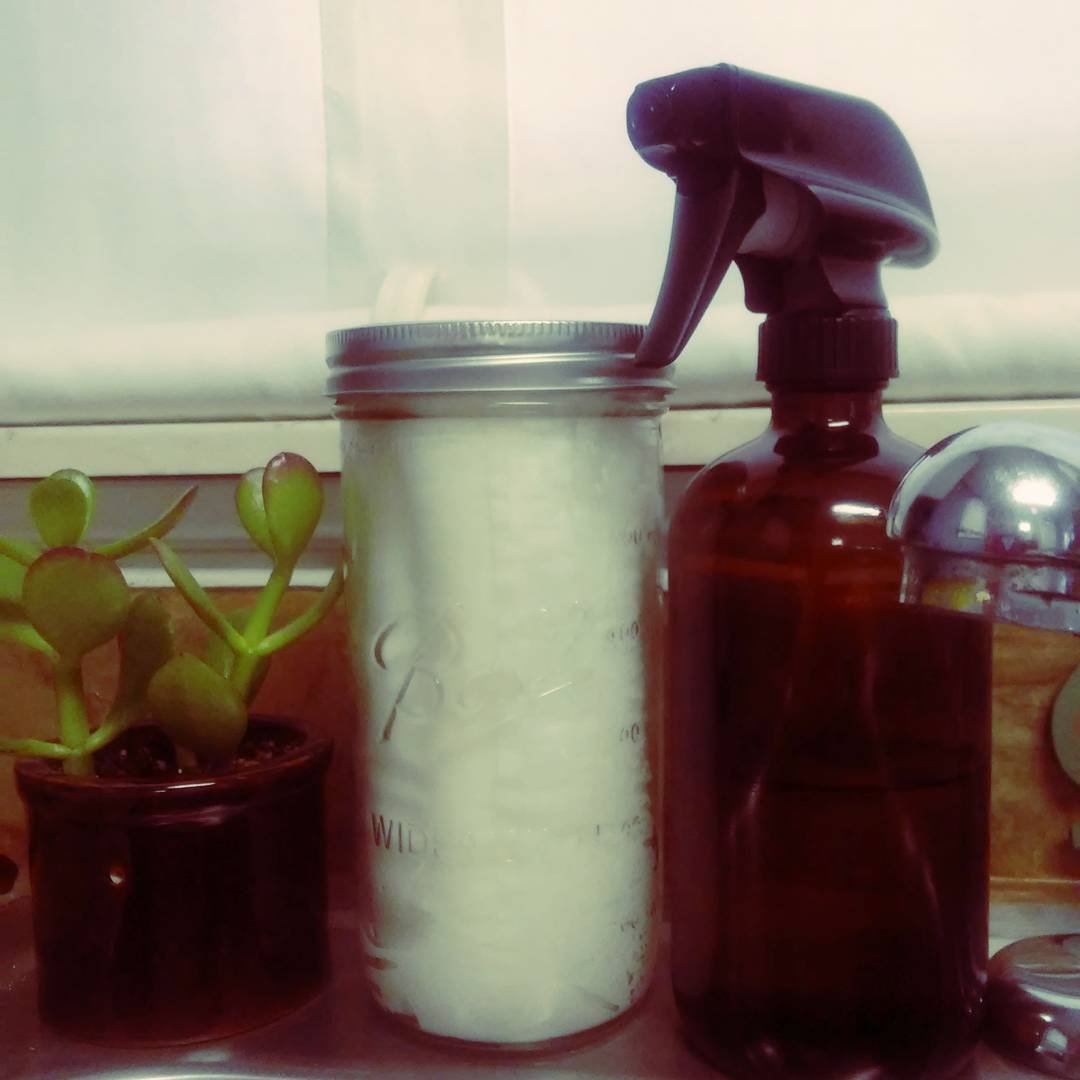
The mix has some fumes, so you need to turn a fan on or open windows before spraying.
Allow it to sit for 1o minutes and scrub if you need or rinse.
Final Thoughts
Common kitchen and household items are safe to use in homemade cleaning recipes. To ensure it, use only natural ingredients from the household and garden.
Make it simple and organic. Don’t try adding unnecessary items to the mix or recipes.
Also, avoid using harmful chemicals, such as ammonia and bleach.
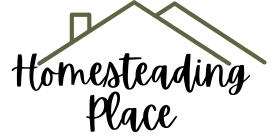

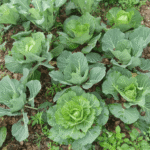

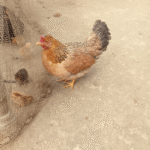

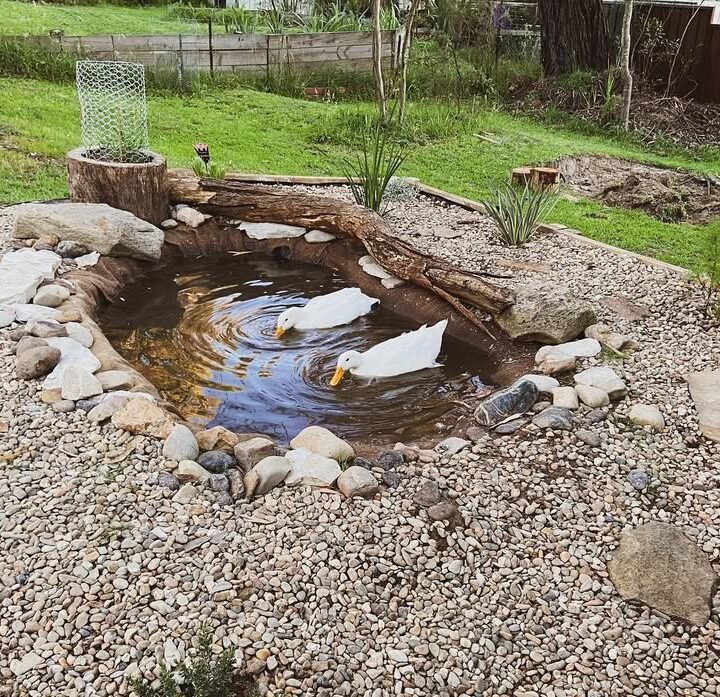

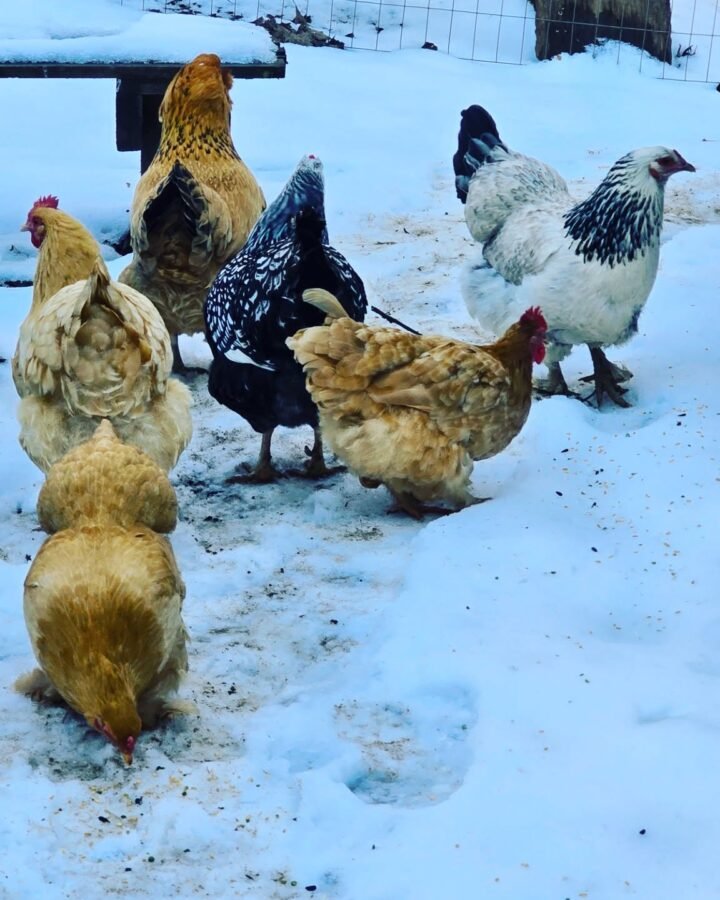
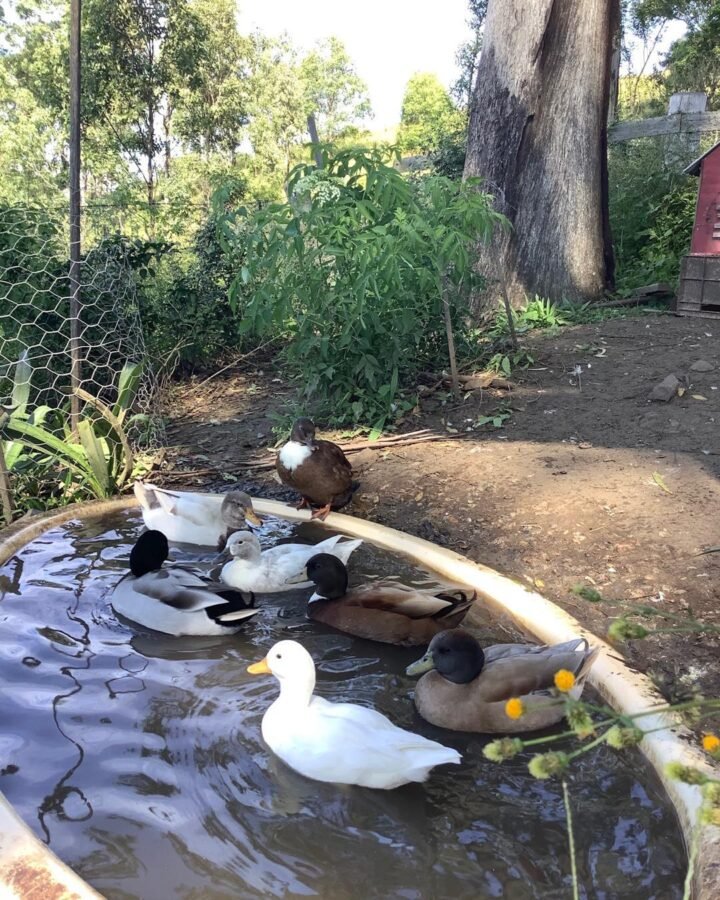
Leave a Reply